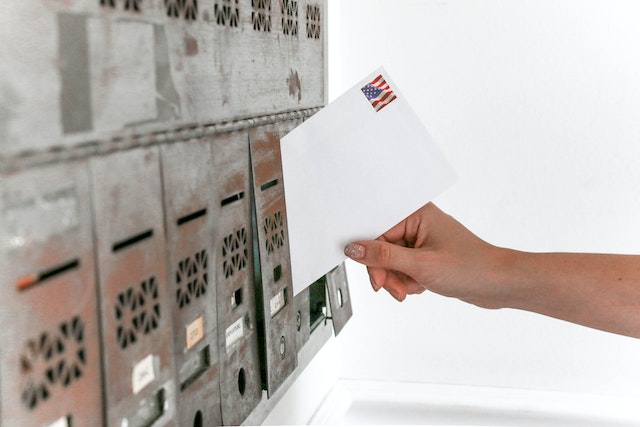Florida Security Deposit Laws
As a landlord in Florida, you have certain obligations under Chapter 83 Part II of the State’s Statutes. Among these responsibilities is the proper handling of a tenant’s security deposit. You must abide by the maximum limit, store it properly, only make legitimate deductions, and return it on time, among other things.
Failure to do this can have a significant impact on your bottom line. The following is a guide on the Florida security deposit laws:
Security Deposit Limit in Florida
Under Florida’s landlord-tenant laws , there is no limit to how much landlords can charge as a security deposit. That said, most landlords often don’t charge anything exceeding 2X the monthly rent. This ensures ensures that the property remains competitive in the local rental market and that the landlord is still able to insure themselves against possible tenant damage.
If you charge a monthly rent of $2000, then charging a security deposit of $4,000 would be reasonable. You could, however, justify go higher if you provide a furnished rental or special amenities.
Storage of a Tenant’s Security Deposit in Florida
You have three options when it comes to storing a Florida tenant’s security deposit. You can store it in a non-interest bank account, but must ensure that you don’t mix any of your own funds with the tenant’s deposit. Also, you must not use part of the tenant’s deposit before it’s actually due to you.

You can also store it in an interest-bearing account in a bank located in Florida. You’ll need to pay the tenant any of the accrued interest either annually or after the lease contract expires. The payment can be in terms of rent or directly to the tenant’s account.
The final option is posting a surety bond for the deposit. Note that the bond company must be in the county where the property is located.
Requirement for Written Notice
Florida landlords must notify their tenants in writing within 30 days of receipt of their deposit. Some of the things that you must include in the notice include:
- Where and how you’re storing the tenant’s deposit.
- How much interest the deposit is going to accrue, if storing it in an interest-bearing account.
- The method of notice delivery can either be by mail or in person. Please note that if you move the deposit you’ll need to notify the tenant.
Deductions on a Tenant’s Security Deposit
The Florida security deposit law allows landlords to make deductions from a tenant’s deposit as long as they are legitimate. The following are the allowed reasons:
- To cover unpaid rent if the tenant moved out of their rental unit without clearing their rent.
- To cover lost rent payments if the tenant abandoned their rental unit or moved out before the end of their lease.
- To cover cleaning costs if the tenant left the unit dirty enough that it needs heavy cleaning.
- To cover damages to the unit that exceed normal wear and tear.

Normal Wear and Tear vs. Damage
The distinction between these two types of rental damage is key in determining who is responsible for repairs. Normal wear and tear refers to the gradual and expected deterioration of a property due to everyday normal use. Examples of normal wear and tear in a rental property include faded paint, minor carpet stains, scratched floors, and minor appliance wear.
Contrastingly, damage is caused by a tenant’s negligence, carelessness, or misuse. Examples include broken windows, extensive carpet stains, large holes in walls, and deep scratches on floors. The landlord is usually responsible for normal wear and tear, whereas the tenant is responsible for damage.
Returning a Tenant’s Security Deposit
In Florida, when to return a tenant’s deposit will depend on whether the refund is partial or whole. If returning it in whole, you must do so within 15 days of the tenant moving out. You must also return it together with any accrued interest if you stored it in an interest-bearing account. Please note that you don’t have to pay the tenant any interest if they break their lease early without a legal justification.
If returning it partially, you must notify the tenant of the deductions within 30 days of them moving out. The notice must state the reason for the deductions and the tenant’s right to contest the deductions.

You must send the notice to the tenant via certified mail. If the tenant doesn’t provide you with a forwarding address, you won’t be liable for providing them with a written notice. If the tenant objects to the deductions, you could seek legal redress. But if they don’t, you must send them the remainder of the deposit within 30 days of the initial written notice.
Sale of the Rental Property
If you sell the property, you must transfer the deposit plus any accrued interest to the incoming landlord. You must also notify the tenant of the transfer via a written notice. After doing this, you’ll no longer bear any responsibility regarding the Florida tenant’s security deposit.
Bottom Line
As a landlord in Florida, abiding by the state’s landlord-tenant laws is a key recipe to your success. This way, you and your rental business can be protected.
If you have a question or need the expert help of an experienced and qualified property manager , turn to Ocean Realty & Property Management. We’re the leading property management company in the St. Augustine, Fl area. Get in touch today to learn about your professional services!
Disclaimer: Please note that the information provided in this blog is intended for general guidance and should not be considered as a replacement for professional legal advice. It is important to be aware that laws pertaining to property management may change, rendering this information outdated by the time you read it.